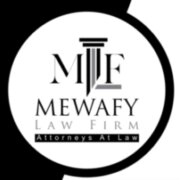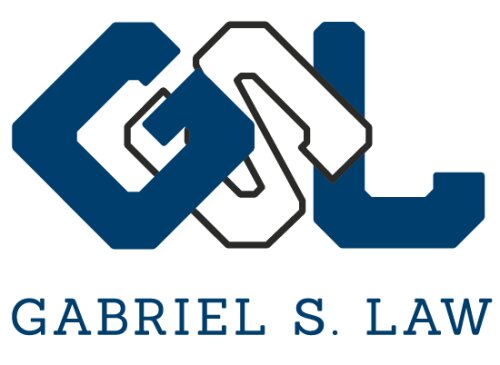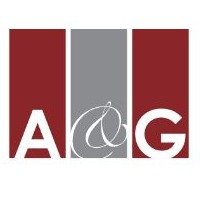Best Creditor Lawyers in Illinois
Share your needs with us, get contacted by law firms.
Free. Takes 2 min.
Or refine your search by selecting a city:
List of the best lawyers in Illinois, United States
About Creditor Law in Illinois, United States
Creditor law in Illinois covers the rights, responsibilities, and legal remedies of lenders and individuals or businesses that are owed money. This field includes a wide range of scenarios involving the recovery of outstanding debts, enforcement of promissory notes, credit agreements, and judgments against debtors. Both consumer and commercial creditors operate within the framework of state and federal laws, which regulate how debts may be collected, what remedies are available, and the protections afforded to debtors. Understanding creditor law is essential for anyone seeking to recover funds or enforce credit agreements while remaining compliant with Illinois statutes.
Why You May Need a Lawyer
There are many situations where consulting with a lawyer who focuses on creditor law in Illinois is beneficial. Common scenarios include:
- Recovering unpaid loans, invoices, or credit accounts
- Securing or enforcing a judgment against a debtor
- Dealing with debtor bankruptcy or insolvency
- Navigating legal restrictions on debt collection practices
- Drafting or reviewing credit agreements and promissory notes
- Responding to challenges or defenses raised by debtors
- Locating and identifying a debtor's assets for collection purposes
- Avoiding violations of state or federal debt collection laws
A lawyer can help you understand your options, represent your interests in court, and avoid costly legal missteps.
Local Laws Overview
Illinois law provides a distinctive framework for creditors, supplementing federal regulations. Some of the key aspects include:
- Collection Practices: Illinois enforces the Illinois Collection Agency Act, which adds additional requirements to the federal Fair Debt Collection Practices Act (FDCPA). Collectors must avoid harassment, false statements, and unfair practices.
- Statute of Limitations: The statute of limitations for most consumer debt in Illinois is generally five or ten years, depending on the type of agreement. After the statute expires, creditors cannot enforce the debt in court.
- Garnishment: Illinois law permits wage garnishment but protects a portion of a debtor's wages from collection. Specific procedures and limits apply.
- Secured and Unsecured Debt: Creditors with collateral (secured creditors) may have additional legal remedies, including repossession or foreclosure, subject to strict rules.
- Court Judgments: After obtaining a judgment, creditors can enforce it through wage garnishments, bank levies, or liens, following Illinois's procedural requirements.
- Exemptions: Illinois law identifies property that is exempt from judgment collection, such as certain personal property, retirement accounts, and a portion of a home’s equity.
- Bankruptcy: Federal bankruptcy law governs most bankruptcy proceedings, but Illinois’s exemption laws play a role in determining what property debtors can protect from creditors.
Frequently Asked Questions
What is the statute of limitations for collecting debts in Illinois?
The statute of limitations for written contracts and promissory notes in Illinois is generally ten years, while for oral contracts it is five years. This is the maximum time creditors have to file a lawsuit to collect the debt.
Can creditors garnish my wages in Illinois?
Yes, creditors can garnish wages after obtaining a court judgment. However, Illinois law protects a portion of wages, allowing only a part of your disposable earnings to be garnished.
What property is exempt from creditor collection in Illinois?
Illinois law protects certain property from creditors, including some personal belongings, a portion of home equity, retirement benefits, and specific public benefits.
How can a creditor collect a court judgment in Illinois?
Creditors with a court judgment may collect through wage garnishment, bank account levies, and liens against real estate, following strict legal procedures.
Are there restrictions on how creditors may contact debtors?
Creditors and collectors must follow the rules of the Fair Debt Collection Practices Act and the Illinois Collection Agency Act, which prohibit harassment, threats, and calling at inconvenient times.
What happens if a debtor files for bankruptcy?
Most collection efforts must stop when a debtor files for bankruptcy, due to the automatic stay provision in bankruptcy law. The court will eventually decide how the debtor's assets are distributed.
Can creditors repossess property in Illinois?
If the debt is secured by collateral, such as a car loan, creditors may have the right to repossess the property if the debtor defaults, but only if they comply with state law requirements.
Is a creditor required to accept partial payments?
Creditors are not generally obligated to accept partial payments, unless the credit agreement specifies otherwise. However, they may voluntarily negotiate payment plans.
How do I obtain a judgment against a debtor?
Creditors need to file a lawsuit in the appropriate Illinois court and prove the validity of the debt. If successful, the court issues a judgment, which can then be enforced using Illinois collection remedies.
Can a creditor charge interest on an unpaid debt?
Most credit agreements allow creditors to charge interest, but Illinois law limits the interest rate unless a signed agreement specifies otherwise.
Additional Resources
If you need more information or assistance regarding creditor issues in Illinois, consider these resources:
- Illinois Attorney General’s Office - Consumer Protection Division
- Illinois Department of Financial and Professional Regulation
- Illinois Courts Self-Help Center
- Illinois Legal Aid Online
- National Association of Credit Management - Chicago Chapter
- Local bar associations and legal aid organizations
Next Steps
If you are dealing with a creditor dispute or need help recovering a debt in Illinois, you should:
- Gather all relevant documentation, such as contracts, payment records, and correspondence
- Assess whether your claim falls within Illinois’s statute of limitations
- Contact a qualified Illinois attorney experienced in creditor law
- Consult free or low-cost legal aid services if needed
- Be prepared to discuss your goals, such as negotiating payment, filing a lawsuit, or enforcing a judgment
A knowledgeable attorney can guide you through the legal process, help you avoid common pitfalls, and increase your chances of a successful resolution.
Lawzana helps you find the best lawyers and law firms in Illinois through a curated and pre-screened list of qualified legal professionals. Our platform offers rankings and detailed profiles of attorneys and law firms, allowing you to compare based on practice areas, including Creditor, experience, and client feedback.
Each profile includes a description of the firm's areas of practice, client reviews, team members and partners, year of establishment, spoken languages, office locations, contact information, social media presence, and any published articles or resources. Most firms on our platform speak English and are experienced in both local and international legal matters.
Get a quote from top-rated law firms in Illinois, United States — quickly, securely, and without unnecessary hassle.
Disclaimer:
The information provided on this page is for general informational purposes only and does not constitute legal advice. While we strive to ensure the accuracy and relevance of the content, legal information may change over time, and interpretations of the law can vary. You should always consult with a qualified legal professional for advice specific to your situation.
We disclaim all liability for actions taken or not taken based on the content of this page. If you believe any information is incorrect or outdated, please contact us, and we will review and update it where appropriate.
Browse creditor law firms by city in Illinois
Refine your search by selecting a city.













